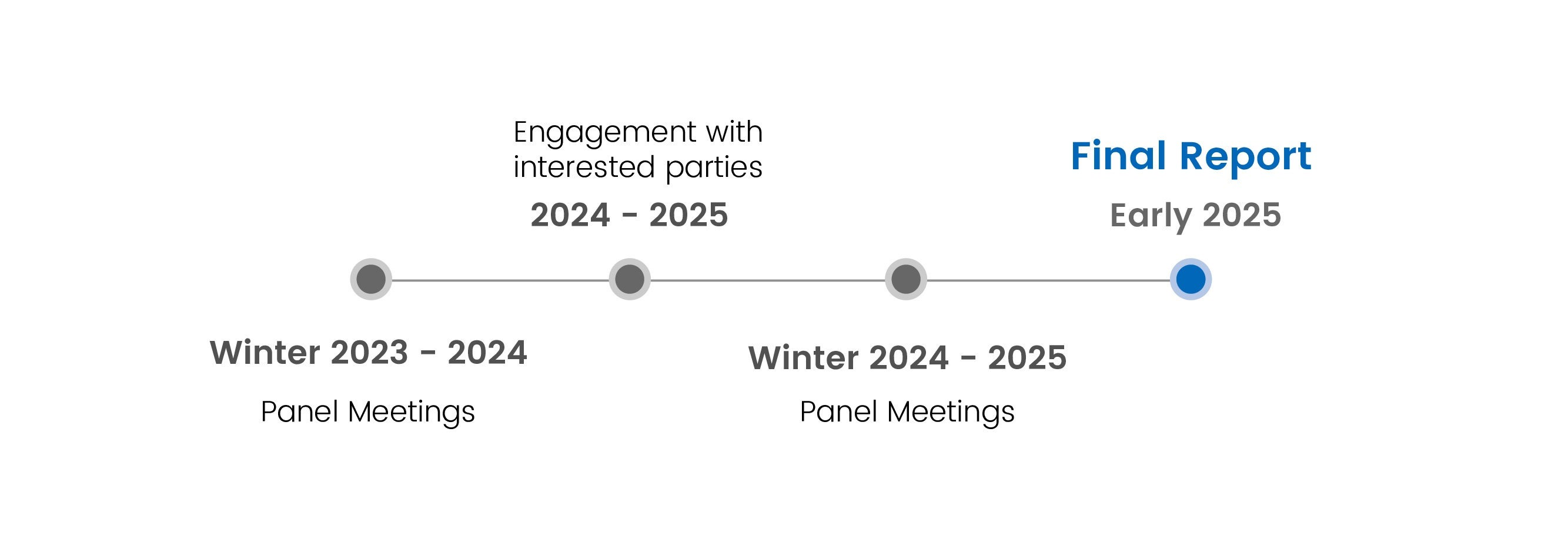Engagement: Seeking Input on Discussion Paper

The Newborn Screening Advisory Panel has published a discussion paper outlining its approach for developing newborn screening guidance.
The discussion paper includes the foundational elements that will underpin the recommendations, such as:
- developing a proposed common set of guiding principles for newborn screening
- exploring a proposed process and criteria for adding or removing conditions
- recommending conditions that newborn screening programs in Canada could screen.
On behalf of the advisory panel, Canada’s Drug Agency invites interested parties to provide their input on the discussion paper. The goal of the consultation process is to promote dialogue and gather feedback about each of the foundational elements outlined in the discussion paper. The comments will inform the final guidance document that will be submitted to Health Canada, shared with provincial and territorial governments, and published on our website.


How to Participate

Download the discussion paper to read the advisory panel’s proposed approach to developing the newborn screening guidance and to view the questions we are asking. All contributors must submit their feedback electronically using our electronic consultation form. The deadline for submissions is September 11, 2024.
By submitting written feedback, interested parties agree to full disclosure of the information. Submissions received will be posted on our website; however, no personal information will be posted. A summary of what we heard during the consultation period will be presented in a webinar in the winter of 2025. Please contact us if you have questions.
Overview of Newborn Screening in Canada

Newborn screening is a term that refers to the tests that are done shortly after birth to check for serious but treatable diseases. Newborn screening helps to identify certain conditions as early as possible to prevent serious health problems. The early identification of rare diseases through newborn screening can lead to more timely diagnoses and appropriate access to treatments and supports early in life.
In Canada, newborn screening programs are established and funded by the individual provinces and territories; each provincial program has its own decision-making processes, policies, and approaches. Because of the unique approaches to newborn screening across provinces and territories, there is an opportunity to provide support to newborn screening program decision-makers by convening experts to provide the best available advice across Canada.
As our understanding of rare diseases grows and the landscape of diagnostic tests, genetic tests, and therapies for these conditions expands, the role of newborn screening as a driver of better health outcomes will continue to evolve.

Activities
Canada’s Drug Agency will build on existing work, assess the latest evidence, and convene an expert panel to deliver guidance to inform pan-Canadian decision-making about various newborn screening issues. These issues include, for example, a process to identify potential new screening conditions for consideration, screening criteria, and equity and ethical considerations. This guidance may help foster greater consistency in the types of conditions tested and support earlier diagnoses and timelier access to treatments which may lead to potentially better health outcomes.
The process of updating newborn screening to reflect emerging developments in this space may have implications for reimbursement, data collection, and system capacity, and include evolving social, ethical, and equity considerations.

Newborn Screening Advisory Panel

We have established the Newborn Screening Advisory Panel, which will develop pan-Canadian guidance for decision-makers about newborn screening. By providing the most current evidence available and a forum to discuss it, we hope to create opportunities to better understand and address variations in screening practices, which could, over time, result in greater consistency.
The scope of work for the advisory panel includes:
- proposing a common set of guiding principles for newborn screening in Canada through reviewing and building on existing practices and guidance
- building on existing work to develop a proposed approach for the addition or removal of conditions for screening and to recommend proposed conditions that newborn screening programs in Canada can screen
- where appropriate, identifying the potential need for additional evidence on emerging newborn screening tests through our existing health technology assessment infrastructure.
The issues that are considered out of scope for the advisory panel include an assessment of:
- individual newborn screening program processes
- funding for implementation of recommendations (e.g., funding allocation, financial contributions, individual program budgets or projected estimates for those budgets)
- laboratory service agreements and processes
- sharing of records, including patient-level data
- matters relating to private insurance coverage
- drugs and/or treatments for rare diseases
- negotiation or review of commercial test prices
- prenatal genetic testing.
The advisory panel will produce a final guidance report in early 2025 that will offer nonbinding recommendations. The report will be submitted to Health Canada, shared with provincial and territorial governments, and made publicly available.

Engaging With Affected Communities
To inform the advisory panel’s deliberations, we will engage a range of individuals, organizations, and groups to gather input, clarify information, and foster understanding. We will post updates on engagement activities and opportunities to provide input and feedback as they become available.
Newborn Screening Advisory Panel Members
The advisory panel is composed of 2 co-chairs and 11 members who come from across Canada and represent dimensions of difference, including gender, culture, and race. The advisory panel brings together a range of expertise and experience, including health care providers (e.g., clinicians, program administrators, researchers), persons with lived and living experience, and individuals with backgrounds in ethics, law, and health administration.
Project Timeline


